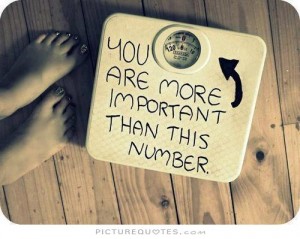 BY EMMET RUSGE: If there is one thing that I have learned from training hundreds of people over the last few years, it is this:
BY EMMET RUSGE: If there is one thing that I have learned from training hundreds of people over the last few years, it is this:
The scale is a great tool for measuring clients, but it is not the only tool when measuring for body composition. It shouldn’t be taken at face value. No movement on the scale does not mean that there have not been changes.
Usually my articles can apply to both men and women, but today, I’m speaking mostly to the ladies.
I have the weight and measurements of every client and every member of my “Better Bodies” classes over the last few years and one thing stands out from the weigh ins.
The scale weight of the clients didn’t always match the inches lost by them.
That is not to say that they didn’t lose any weight on the scale, but it didn’t always match into the amount of inches lost from their waists, hips or thighs, but for most clients, especially the female ones, the scale will always be the ultimate factor to whether their plan was successful or not.
I have had clients lose 10cm from their waist and drop a dress size over a 6 week period, but because the scale weight ‘only’ dropped 2kg, they deemed this as a failure.
When asked if their clothes fitted better and if they were happy with the changes in their bodies, the answer is always ‘yes’, but this is nearly always followed with a ‘but’ and this ‘but’ is usually in reference to the scale weight.
One can’t really blame them.
Females especially, have been hardwired to think that the scales are the be-all and end-all of weight loss, and anything except rapid drops in scale weight is seen as a complete failure.
This couldn’t be further from the truth.
You have to first understand the variations in weight:
There are a few things that go into the “weight variance,” namely the following three things.
Glycogen stores.
This amount depends on your current consumption of carbohydrates. For every gram of carbohydrate that your body stores via glycogen, it also stores 3 grams of water. If you are carbohydrate-depleted, you will be at the lower end of your variance. Conversely, if you consume a ton of carbohydrates, you will be at the upper end of your variance.
Water retention/depletion from sodium.
If you suddenly consume more sodium than you are used to, you will likely retain water. Conversely, if you suddenly consume much less sodium, you will release water. Your body adjusts to the new levels accordingly via the hormone aldosterone, so don’t think that you can keep this value low just by cutting sodium out from your diet.
Cycle bloat.
Women will retain water during their cycle. For this reason, it’s best for women to only compare weight from month-to-month.
Example;
So let’s say that you are doing well on a diet plan, you have been sticking to it for a few weeks and then you end up out at the weekend and have a ‘bad night’ nutritionally and go on a binge.
You get up the next morning, and feeling guilty, you step on the scales.
Bam! Your weight is up and you look visibly ‘fatter’ in the mirror.
Congratulations, you have just messed up the last few weeks of your diet.
You may give up now and just go back to your old habits and get fat again.
Woah, woah, woah….. hold on there Missy.
Let’s look at what we said about glycogen and sodium up above.
Firstly; you were on a low carb diet and eating pretty ‘clean’, so we are going to assume that your glycogens and sodium levels are slightly low.
Your binge was all the foods that you haven’t been eating over the last few weeks, possibly a take away.
What you are more than likely experiencing, along with the guilt, is what happens when people go on a binge
Typically, they will retain a lot more glycogen afterwards and see a massive increase in the scale.
This is only water weight.
Remember that for every gram of glycogen (carbs) that you ate, your body also stored 3 grams of water.
Too often, I’ll see people defeated because they “gained all of the weight back.”
When the reality is, it is fluid retention and if they get back on track, this will dissipate over a few days and the ‘weight’ they have put on will be gone.
The scale is a tool that can be used for measuring weight loss. Just remember that there are many different ways to measure body composition. Scale weight is only one of these and shouldn’t be exclusively used as the be all and end all of your goals.
#TrainSmart
If you have any question on this article or for getting a tailored program based on your starting point, please contact me through the link below.
https://www.facebook.com/pages/Rushe-Fitness/120518884715118
Tags:






